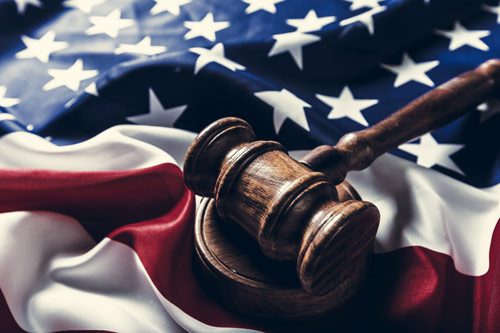
Real Respect
Real respect means creating systems of support that are specifically designed to help veterans who find themselves struggling after they have completed their service. Far too many veterans who have had difficult or traumatic experiences while serving end up in a seemingly unbreakable cycle of mental illness, substance use issues, homelessness, and incarceration once they return to civilian life.
Veterans treatment courts seek to provide an off ramp for those who feel trapped in this terrible cycle. By respecting the special circumstances of veterans, these courts offer them a chance to chart a new path—a part in which their mental health is supported in a robust, ongoing way and substance use is left in their past.
What Is a Veterans Treatment Court?
A veterans treatment court is a specialized court that only has cases involving veterans on its docket. The primary goal is to give the vets who find themselves before the court an opportunity to get the support and treatment they need—rather than consigning them to prison where they are unlikely to receive treatment for mental health or substance use disorders.
Veterans treatment courts offer vets four things that can help them regain control of their lives:
- Treatment for mental health and substance use disorders
- A system of accountability for their actions
- A structured program that takes advantage of the ways in which veterans learned to value structure during their service
- A connection to the service of the VA so that they can take full advantage of the benefits they have earned related to health, education, and disability
These veterans-only courts have a remarkable record of success keeping veterans out of prison and giving them the tools they need to restart their civilian lives.
Part of that success is no doubt due to the important sense of camaraderie that can be developed. Veterans participate in the treatment court process with fellow veterans, and that can help them reconnect to the feelings of teamwork and individual responsibility that make for successful military operations. The value of this sense of camaraderie simply cannot be overstated.
Mountain Laurel Recovery Center Partners with Veterans Treatment Courts
The team at Mountain Laurel Recovery Center is proud to have developed a strong partnership with our area’s veterans treatment court. Our detoxification and rehabilitation program offers a path past a substance use disorder. Meanwhile, we also have the expertise and resources to address mental health disorders—including depression, anxiety, and PTSD.
This is an important combination of services because of the frequent connection between mental health disorders and substance use disorders. Addressing both is the best the path forward because good mental health and ongoing sobriety reinforce one another.
Mountain Laurel Recovery Center is PsychArmor certified, a designation which recognizes our specialized training in helping veterans who are struggling with a substance use disorder. The facility is also part of the VA’s Community Care Network.
Our service to veterans is further enhanced by our specialized treatment track designed specifically for the needs of veterans and first responders. This track includes processing groups and didactic (that is, instructor led) groups that provide opportunities for veterans to share their experiences and to learn strategies for maintaining sobriety over time. This treatment track is grounded in the evidence based program known as Seeking Safety, which was developed in the 1990s as a present-focused counseling model that can treat co-occurring PTSD and substance abuse. They guiding principle is to help veterans attain safety from drugs, alcohol, and trauma.
This Work Is Urgent and We Are Proud to Serve
The statistics are stark. One in five veterans has symptoms related to a mental health disorder or some degree of cognitive impairment. One in six vets who served in Operation Iraqi Freedom and Operation Enduring Freedom are battling a substance use issue.
Obviously, this is not what anyone wants for the individuals who have put everything on the line for their country. Our respect for these heroes is what drives our ongoing efforts to support the veterans treatment court model via top-notch substance use disorder and mental health disorder treatment for those who have served.
We do this to help veterans reclaim their self-respect. And to remind them that they are always worthy of our respect.
